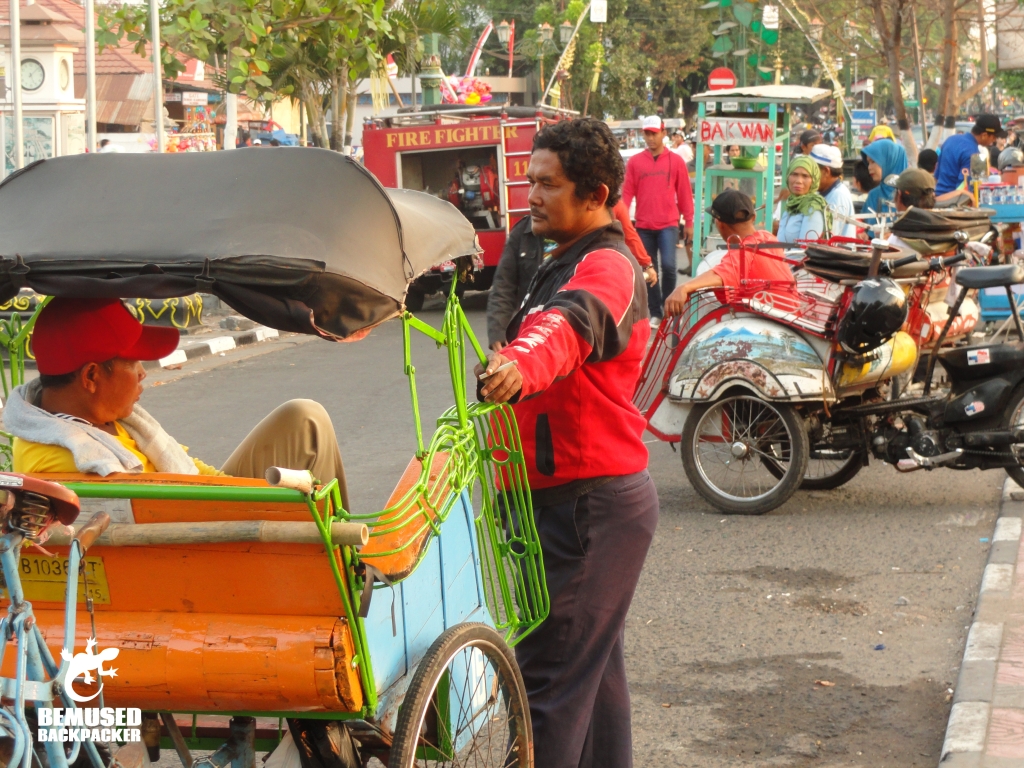
Knowing how to spot and react to common backpacker scams around the world is an essential skill in any travellers arsenal, and it is essential that you do your research and are as informed as possible about common scams before you set off on your gap year. This list is by no means comprehensive, but it will cover the majority of the basic cons you need to look out for.
The Most Common Travel Scams.
Almost everywhere you go in the world, one of the biggest problems you will face as a backpacker involve touts and scam artists. 99% of the time these are nothing but a mere nuisance, just people trying to get you to part with a bit more of your cash as opposed to an actual threat or a danger. I get that sometimes the sheer amount of hassle from touts can get extremely tiresome it is important to distinguish between someone just constantly trying to sell stuff to tourists and an actual scam.
The best way to deal with touts and scam artists most of the time is simply to ignore them. Not engaging at all is a very effective tool.
If that fails learn to say a few basic phrases such as ‘no thank you,’ or ‘leave me alone’ in the local language (we’re back into the blending in and not looking like a tourist common sense tip there).
But sometimes things aren’t as simple as a mere tout trying to sell you something, and there are people out there who will try and part you from your money using a variety of tricks and cons, some of them bordering on breaking the law, or even crossing that line entirely. In those instances it can help immeasurably if you are actually aware beforehand of the types of scams there are out there.
Understanding Basic Scams.
Most scams have a thousand and one variations on a single, basic theme, dependent often on where you are in the world and the ingenuity of the tout themselves. This means that why tiny details may change from place to place and time the basic scam is the same wherever you go and knowing those basics will allow you to spot most variations.
This is a list of some of the most classic scams that will all have a common base.
The Meter Is Broken Scam.
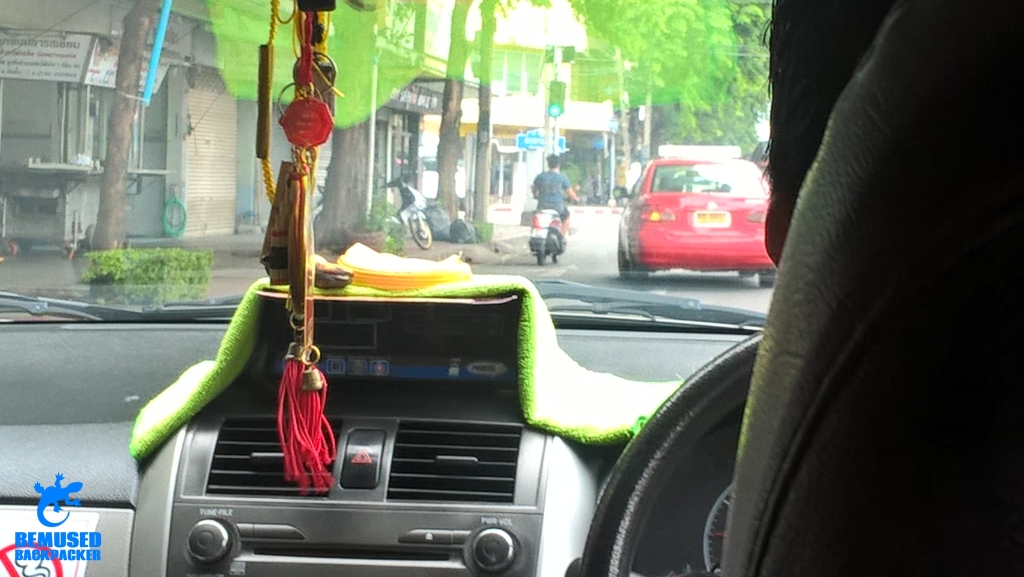
Taxi drivers are the scourge of backpackers everywhere*, and are notorious for this extremely common scam that is prevalent right across Central and South America, Africa, India and South East Asia amongst other places. Pretty much anywhere you’ll find backpackers!
Basically if a taxi has a meter, they have to use it. By law in most places. Yet the vast majority of them will try every excuse under the sun not to so that they can instead quote you an outrageous price, often 4 or 5 times what the actual fare should be. The meter will be broken, they don’t use it for those specific journeys, I’ve even had some try and hide it under a piece of cloth! Whatever the excuse, they still have to use it.
How To Deal With It.
The best way to avoid this scam is to use official or pre paid taxi stands wherever possible. Where this is not possible simply insist they use the meter or find another cab. Don’t negotiate with them. A good rule of thumb is to get an idea of what a journey should cost beforehand and be firm on that rate.
*note: there are some honest ones too, who will instantly put on their meter, are friendly and simply want a fair price for the journey, although unfortunately these are in the minority it seems. When I do find these rare and pleasant souls, I always leave a good tip (remember a good tip to them is usually only a pound or two to us) to try and encourage that behaviour for other backpackers.
The Closed Accomodation Scam.
This is another trick unscrupulous taxi drivers have tried to use for decades, especially on those travellers who are coming straight from the airport or seem very new to a place. Very basically they will try every way they can think of to convince you that your accomodation, obviously your intended destination, is closed and that conveniently they know a much better place you can go to instead. It isn’t closed, they don’t know a better destination and all they are trying to do is take you somewhere they can get a good comission from and you’ll pay a higher rate.
How To Deal With It.
This isn’t as common as it used to be before the ubiquitous use of smartphones but it does still happen. Basically you have all the power in the palm of your hand. Just insist on your original destination, you know it is still open because you can book a room on your smartphone before you arrive (and probably already have with a confirmation email dated a day or two earlier), and you can check your route on Google Maps. Again, if they do try it on just be insistent or get out and grab another taxi.
The One Day Only Government Sale Scam.
In certain parts of the world such as India or Thailand, where small motorised vehicles such as tuk tuks are prevalent, a common scam is for the driver to try and persuade you to visit a shop, factory, hotel or any place of business instead of taking you straight to your destination. Sometimes they can be really pushy, promising the earth, a one time only special sale, just for you sir, or even offering a discount on the ride to your destination if you agree to go to a few shops with them. They are of course on good commissions for any backpacker they bring to these places. This isn’t of course just limited to tuk tuk drivers, sometimes they have accomplices on foot who will approach you with an extremely polished sale patter, only to have his friend in a tuk tuk turn up at some secret gesture. It is all extremely polished.
How To Deal With It.
Easy, just ignore it and insist on going to your destination straight away. Do not allow them to enter into their rehearsed patter trying to get you to go to x, y or z instead of the official entrance or ticket booth.
The Gem Scam.
The infamous gem scam that is prevalent across South East Asia, India and other countries is so well known and so infamous amongst backpackers (it has even been mentioned in every other blog, website and most popular guide books printed over the last few decades, the famous bible even mentioned it on my first Gap Year over 20 years ago) that it is hard to believe that it still happens, but it does! People still get caught out by it!
Again there are slight variations (antiques, carpets, tailored suits, textiles and so on are all used in variations of this scam) and different hooks to get people into this situation, but the common theme generally involves a friendly local, usually approaching you at or very near a major tourist site, offering you the deal of a lifetime if only you will help them.
You see they are professional jewellers, of course, and have a lot of precious jewels and stones worth a fortune in the western world, but they cannot afford to pay the import taxes to sell them there. I mean it is truly shocking how difficult it is for a professional jeweller to earn a crust these days! If you buy the stones off them – at a soul destroying and heart breaking discount on their part of course – you can take them home with your duty free allowance and sell them for a huge profit! All they need is a lump sum payment or a credit card guarantee plus your signature and details.
I know, at this point you would think people’s alarm bells would start ringing, but these people can be so slick and practiced at what they do that people still do fall for it. It goes without saying that the precious gems are nothing more than plastic or glass, although after their spiel you will be convinced otherwise, and they will be absolutely worthless. That huge profit you thought you were going to make when you get back home is never going to happen.
How To Deal With It.
Just use your common sense. There is no such thing as a quick windfall and you are not that lucky, so if it seems too good to be true, it probably is. Odds are you are not an international jeweller, you do not have degrees and doctorates in Geology or Petrology or decades of experience in the jewellers trade, so what makes you think you can get one over on experienced people who really know their stuff or make a quick profit on something like this? Knowing about it and being aware of the scam whenever anyone starts to mention it is one of the best ways to combat it. Just walk away.
The Drug Deal.
Common in many developing countries, especially one where there are famous backpacker nightlife scenes such as the Full Moon Party in Koh Phangan. Basically someone will come up to you, offer you drugs and before you know it the police have gripped you and are demanding a bribe or they will take you to jail. It will be of no surprise to anyone that the dealer is in on it and the corrupt police are just looking for a quick payday, but make no mistake they will cart you off if you don’t pay up, these are generally not fake police.
How To Deal With It.
Just say no! This is the one time where I will have zero sympathy if you get caught out.
The Tourist Tax Scam.
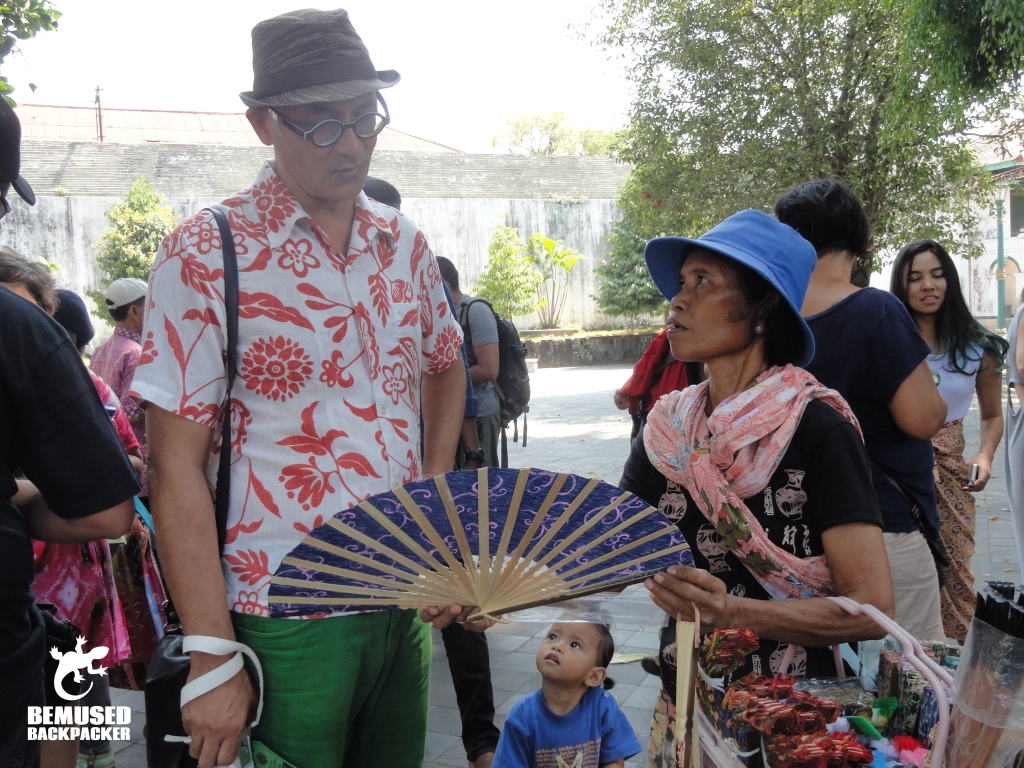
This isn’t a scam as much as it is a general across the board rip off at any market, stall or shop that doesn’t have fixed prices. Basically as soon as the vendor sees a tourist or backpacker, the price will jump three of four times to what it should be. You can be overcharged for goods or souvenirs at market stalls, hotel rooms, tours or activities, basically any item or service that a traveller will have need or desire for.
How To Deal With It.
Like I said it isn’t so much of a scam as it is more than expected that you will try and barter the price down, and this is where your haggling skills need to be honed into a fine art. Just take any original price they quote you with a pinch of salt. There is no right or wrong price in this situation, but generally you should be aiming for anywhere between a third and a half of what the original asking price was, just use a little common sense as to what a fair price is and shop around. Odds are if you are in a market stall there will be dozens of other vendors with the same goods at wildly varying prices.. Don’t get too hung up on this however, if you both arrive at a fair price for goods, one that you are happy to pay for something and one that the vendor will still make a profit on, then be happy with that. It isn’t worth turning so miserable and angry you haggle over every single penny, but it is acceptable to start low and haggle to a fair price. Be a little cheeky, but keep the mood happy and light.
The Flirty Local.
This is a common scam where an attractive, friendly local will approach you in a bar. At first it is great, your ego gets a massage, you can’t believe your look, they will compliment you, have some great conversation and order a ton of drinks. All of a sudden they will disappear and you are on the hook for an insanely inflated bar bill and a few less than friendly looking locals to help encourage you to pay it.
How To Deal With It.
Common sense prevails here, if it is too good to be true it often is. Unless you are Henry Cavill or someone similar then keep your percieved sex appeal in perspective, especially if they are overly flirtatious. Don’t get a bar tab, don’t let anyone order drinks on one while they are signalling they are with you and pay for your own drinks.
*Please note there is a far more insidious risk to this scam where people have woken up after being drugged in a bar and had all their valuables stolen or even worse. Again, be wary, buy your own and look after your own drinks and stay alert.
The Helpful Local.
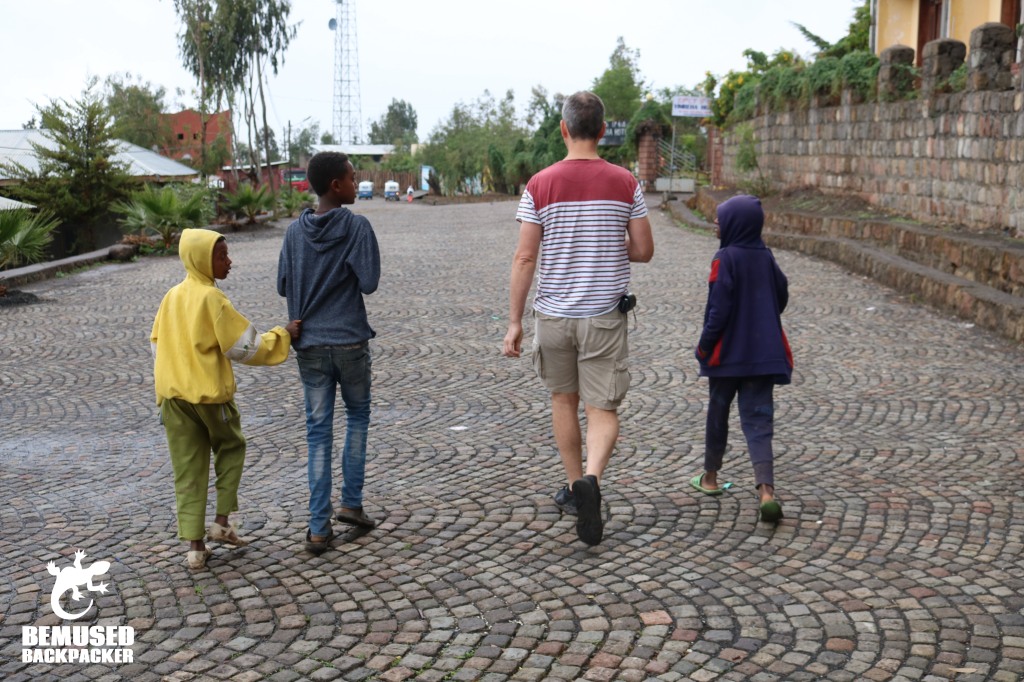
Whilst exploring a tourist area or local site, you will probably be approached by an extremely polite and friendly local. The approach can take a variety of forms, from language students wanting to practice their English, people asking where you are from (and then of course they will miraculously have a friend or relative who lives there no matter where you say), unsolicited offers of help when you get your map out or any one of a thousand excuses just to get to talk to you and start their spiel.
These introductory spiels are known as hooks, because that is how they start to reel you in.
Any of these hooks can be used to lead into any one of a hundred scams, basically they are just used to get your attention as a way to get you to part with your money or go somewhere you don’t want to go. That friendly chat will suddenly lead to an invite somewhere, maybe to their friends house, an authentic local tea ceremony, a vendor selling the most authentic street food or maybe the infamous one day government sale and they just happen to know a Tuk Tuk driver who happens to be across the road who can take you for a great price. Whatever it is, they just want to part you from your cash.
These helpful locals are extremely practiced at what they do, and sometimes work in pairs or in groups. They can also be extremely persistent which can be exhausting in certain countries such as India or Cambodia, and often it can be extremely annoying or even disconcerting when the hassle becomes constant and relentless.
How To Deal With It.
It is easy to feel like becoming nasty and mistrusting of everyone who approaches you after you have been subject to a few days of this, but that is never a good idea. It is important to remember that the world is full of genuine people who are actually trying to be friendly or helpful. However, it does no harm to develop a healthy distrust of all unsolicited offers of help or people who walk up and strike up a conversation out of the blue. Be polite, be friendly, but be wary.
It is often a hard balance to get right and will take some practice, but you can remain friendly and talk to people while still keeping that shield up. Think of it like raising your shield to yellow alert as opposed to going straight to red. That way you can interact with them while keeping an eye out for any of the trigger phrases that will lead to a scam, such as them wanting to show you to a shop or factory for example.
When this happens just quickly shut them down and say your goodbyes. Do not be swayed by them. After that it is often best to ignore them and walk away when you can, or politely decline if you have to, but don’t be afraid of being assertive if necessary either.
The High Pressure Sale.
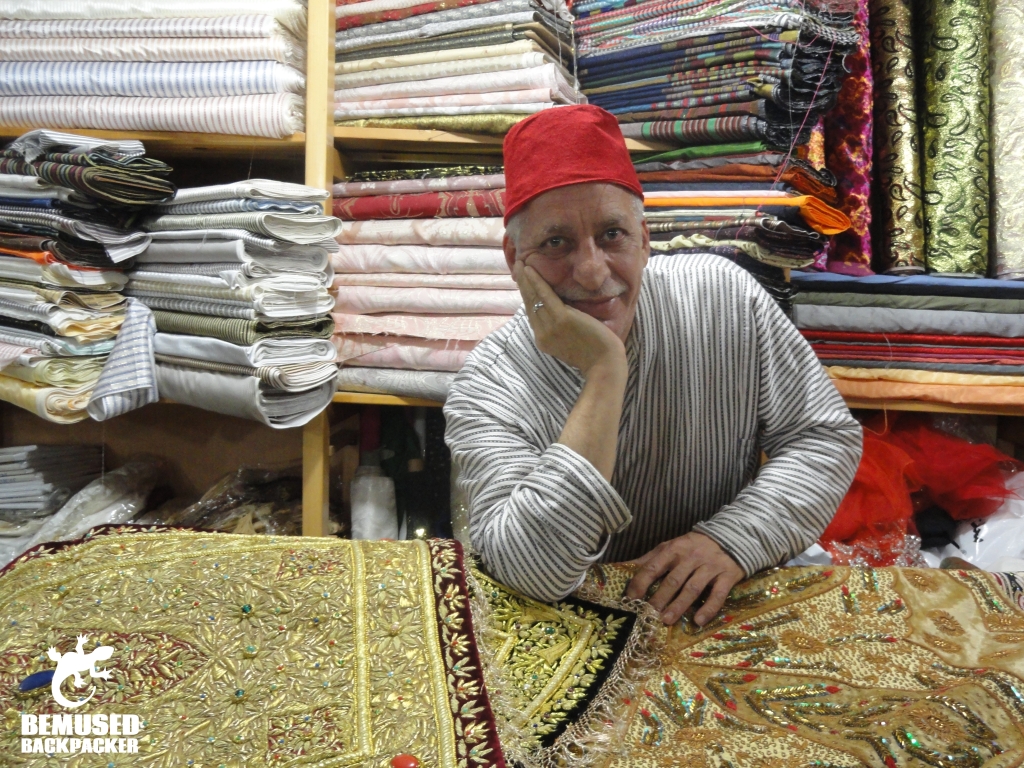
This one is usually coupled with the helpful local scam and is basically a combination of a high pressure sale and a little bit of psychological manipulation. Basically once the nice, helpful local has gotten you into their friends shop or factory the charm offensive will start. You will be having a nice friendly chat, you will be offered a nice cup of tea or a coffee and you will be treated like a king or queen. It is then the high pressure sales tactics start and you will feel obliged to buy something because they have all been so nice to you, obviously at a significantly inflated price.
How To Deal With It.
If you do find yourself in this situation don’t worry, the biggest risk to you is just buying some papyrus or some cloth or whatever it may be at an inflated price. Just remember you are under no obligation to buy no matter how much they pressure you and how much they try and guilt you. Of course if you do want whatever it is they are selling you can always try haggling them down until you are at a price you are both happy with, but you don’t have to. If you want out, just thank them for their hospitality and leave.
The Free Trinket.
This is another common follow up to the friendly local and is much more insidious and intimidating. Basically someone will come up and strike up a friendly conversation with you, they will then try and place a small bracelet on your wrist or a bandana on your head, something that they can very quickly tie or attach to you. Much less common they will simply hand you something like a sprig of rosemary or heather or something similar. Once they have succeeded in that they will start to demand money. The worst incidents can get very insistent, aggressive and will try to cause a scene. I once had one woman scream racist at me because she failed to tie a bracelet to my wrist!
How To Deal With It.
Just ignore them and walk away. It is obviously best if you can avoid having anything put on you but if they manage to tie anything on you simply remove it, hand it back and walk away. The scene they will create generally only lasts as long as you stay there, they will quickly move onto their next target when they see they aren’t getting anywhere. This one is a horrible scam because it can leave many travelllers feeling a bit shaken. Don’t let it affect you, it isn’t personal. Just walk away and enjoy your destination.
Attraction Closed Scam.
This is an extremely common scam in major tourist attractions across the world, you will turn up at said attraction, only to be told by an official looking person a short distance away from the entrance that the area is closed at the moment. This can be for a huge variety of reasons, from a religious ceremony and prayer time, to construction work and security concerns or even riots (of which of course there will be no sign of anyone actually rioting). Of course the official will very conveniently have an alternative shop or business that you can visit for an hour or two, then when you return the attraction will of course be open. Needless to say the attraction isn’t closed at all, you will have no problem getting in, and any shop or business you get diverted to will subject you to a very hard sell to get you to part with your money.
How To Deal With It.
Don’t rely on the word of one official (who may or may not actually be a real guard), go up to the official counter and buy a real ticket.
The Friendly Guide.
This happens generally in archaeological or historical sites such as Giza, Chichen Itza, Angkor Wat and many more across the world. Basically as you are exploring the temple, tomb or whatever, a friendly guide will come up to you and start telling you the fascinating history of the place and start guiding you round. Whilst this can sometimes be very interesting, it is more often than not unsolicited, and when you are ready to leave the ‘guide’ will undoubtedly want a large tip. Whatever you give them, they will undoubtedly press for more and there have even been reports amongst backpackers of these guides becoming extremely pushy to the point where it feels almost like a mugging.
Another slight variation on this is for these official guides to ‘allow’ visitors into a previously secret and cordoned off area, for a small fee, of course. Needless to say don’t pay them. Either one of two things have happened here, they have cordoned off the area themselves in an effort to make a little more money, or they are really letting people into an area they shouldn’t, or are allowing photographs to be taken of steles or murals which should be protected and preserved from bright camera flashes. Either way it is wrong and should not be supported.
How To Deal With It.
Do not feel afraid of telling them in no uncertain terms to leave you alone and you aren’t interested, and certainly don’t go into cordoned off areas or take photos of things you shouldn’t. Be assertive. If they continue with their spiel after that then you can’t say you didn’t wart them and simply refuse to pay when they demand it. Walk away. If they become pushy, threaten to call a guard, the police or where they are available, a tourist police officer over.
The Distraction Scam.
This isn’t technically a scam as it is so much an outright crime, but so many people fall prey to it that it is worth mentioning. Basically at some point you may be accosted by some locals who want a photograph with you, a pretty lady chatting to you at the bar, a bunch of kids having a fight and knocking into you or the worst one in my opinion even spilling a drink or other liquid over you. Basically you are being distracted so they or their accomplices can relieve you of your wallet or valuables. These pickpockets are extremely skilled at what they do, so if you give them a chance you won’t even realise your stuff is gone until it is too late.
How To Deal With It.
The best way to avoid this situation is not to have anything too valuable on display, a fancy camera on the table next to you or anything too valuable in a place that can be easily pick pocketed. A fake wallet or purse with a small amount of local currency is fine (with your real cash and cards stashed about your person in a secret pocket) to give the thieves a false target and will ensure if it does happen to you that you won’t lose much.
It is also extremely important to be aware of your surroundings at all times, difficult when you are in a new place and surrounded by the majestic sights of tourist attractions I know, but developing your situational awareness is a real skill that you should work on.
The most important thing is to instantly be on your guard the instant anyone gets too close, comes up to you too quickly, bumps into you or anything out of the ordinary, and that includes any helpful passersby if an incident happens. Now this instinct does take practice and you will have to actively start thinking in this way for a while for it to become natural, but it is one of the best front line defences you can have as a traveller. Of course I don’t mean to frighten you into becoming overly suspicious or paranoid, but maintaining a friendly, healthy distrust of strangers is extremely useful.
The ‘I’m In Trouble’ Scam.
This is a really old confidence trick and one that you do still come across from time to time. There are a lot of variations on the same theme but what it essentially boils down to is you will be approached by a complete stranger attempting to engage you in conversation. They will tell you a tale of woe and how desperate they are. Of course they would normally never ask, but they really need just a little cash to get to the embassy, get back to their hotel or catch a train, whatever. This may seem really obvious when written down in black or white but believe me these confidence tricksters can be unbelievably slick. Hollywood has nothing on these people. It is a little bit horrible to assume that everyone who says they are in trouble are in fact confidence tricksters, but think about it, if they were really in trouble why come to you? Finding a nice friendly law enforcement officer or walking to an embassy shouldn’t be that difficult!
How To Deal With It.
Have a hard heart and walk away with a quick ‘sorry I have no money on me’. It’s that simple.
10. The Baby Milk Scam.
This is extremely common in Cambodia, so much so it has almost become synonymous with the destination, but it does occur elsewhere too. This scam involves a desperate looking mother clutching her baby and begging, but not for money, she is begging for you to buy her baby some milk from the conveniently located powdered milk stall nearby. The powdered milk is of course highly overpriced, and gullible tourists pay this price thinking that they are helping a starving little baby. How could you refuse that? The problem is as soon as you have gone that powdered milk goes straight back to the store and the ‘mother’ gets a nice split of the profits.
How To Deal With It.
This con works because it disarms people by letting them think they are doing a good deed. They aren’t handing money over to a beggar, they are buying food for a baby. Honestly knowing about this scam is 99% of the way to avoid it. Just be heartless and say no.
The Rental Vehicle Fake Damage Con.
Many backpackers during their gap year will at some point rent out a bike, a moped or some sort of vehicle to get around on for a day or two. All is fine until you come to return the vehicle, and all of a sudden a scratch or a scuff magically appears somewhere on the body that the owners insist was not there before and insist even more forcefully that you have to pay for.
It is never anything serious, a simple scratch or dent, something that can be very easily missed and very easily fixed, but also something that will cost a fair amount of money. This is simple good old fashioned extortion with a good dose of fraud thrown in for good measure. You know you haven’t caused any damage, but the scratch or dent is clearly there. What they are doing is using that same damage to extort money out of every single person who rents that vehicle out.
How To Deal With It.
Be very careful with this one as things have been known to get a little ugly when you refuse to pay, especially if you have also done something as daft as letting them hold your passport (which you should never do) or have given them all your credit card details (ditto). If you really must rent a vehicle out, then make sure you examine it very, very carefully before you take it. Take photos of any damage that you see as well as the general condition of the body, do this in full view of the person you are renting it from and keep this as evidence that you are returning it in the exact same condition as you took it out. It should also go without saying that you should have comprehensive travel insurance too.
The Rental Vehicle Theft Con.
In a similar vein, it is very common in many less developed backpacker areas for unscrupulous renters have someone follow you once you leave the rental lot on your bike or moped and wait for you to lock it up to go to the beach or go and get soething to eat, and then steal it back from you. Once you return and find your bike gone, obviously you will lose your deposit and be on the hook for a lot of money to the rental place who will have the vehicle in the back.
How To Deal With It.
Similar to above make sure your insurance is comprehensive and use your own seperately bought lock for the bike, as if you use one provided by the shop it is very easy for a friend of theirs to have a second set of keys. If this happens anyway simply call the police after obtaining all the photographs and identification before even leaving the shop. Don’t be tempted to hand over more money no matter how insistent they are.
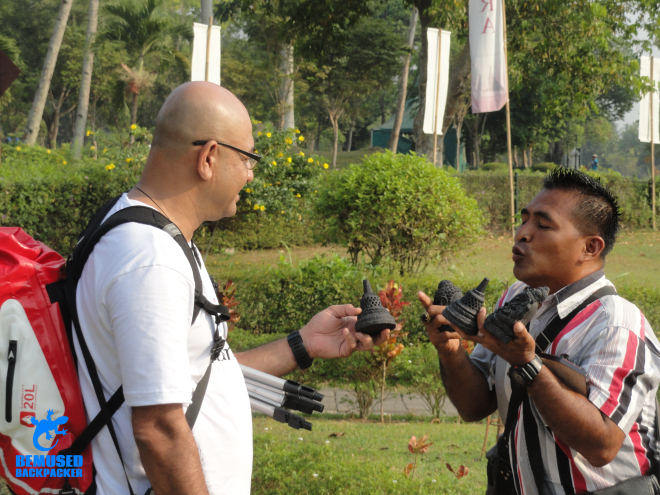
These are common scams all over the world and you will quite often find slight variations on each theme, instead of gems in India for example it may be rugs or carpets in Iran. Either way knowing the basic mechanics of each scam, confidence trick, distraction technique or psychological trick will help you notice the triggers no matter what the variation is and will help you be on your guard. No matter how prepared you are, or how experienced a traveller you are, odds are it will happen to you at some point.
Don’t let this put you off travel in any way shape or form. Travel is overwhelmingly safe, the vast majority of your experiences and interactions with locals will be awesome and completely innocent, but you will come across this too. It’s a rite of passage that will help you become much more world experienced. That is why it is important to remain positive and enjoy your travels, but just be aware as well.
Related Articles.
Child Beggars And The Travellers Dilemma.
Gap Year Safety: The Ultimate Guide For Safely Travelling The World For Sale Now!
How To Avoid Taxi And Tuk Tuk Scams In Bangkok.
How To Avoid The Annoying Touts In Egypt.
Solo Female Backpacker: Guide To Safely Travelling The World For Sale Now!




